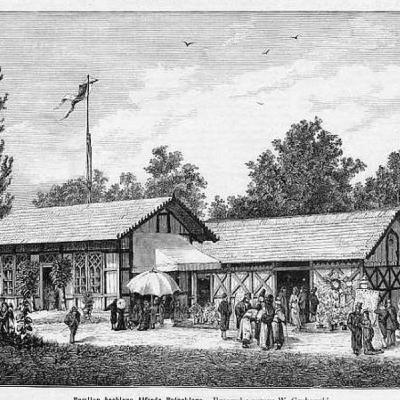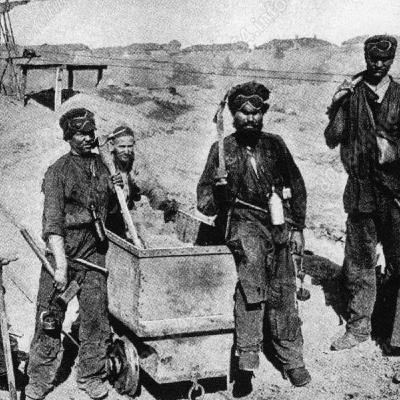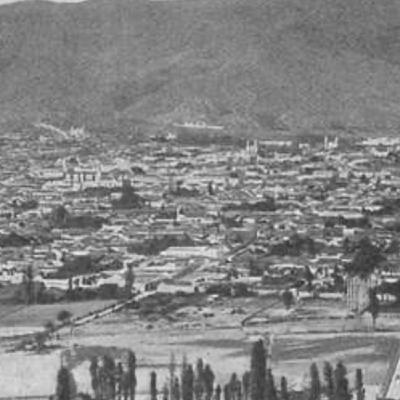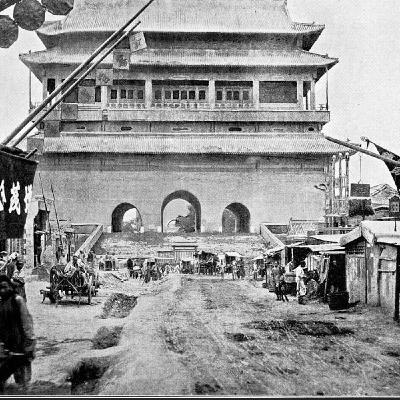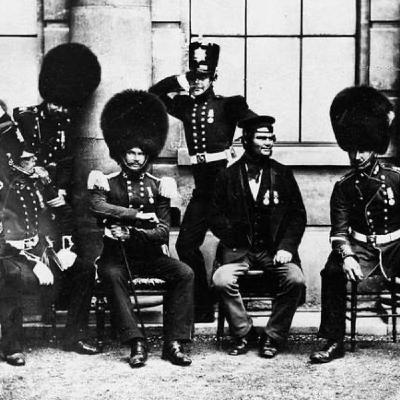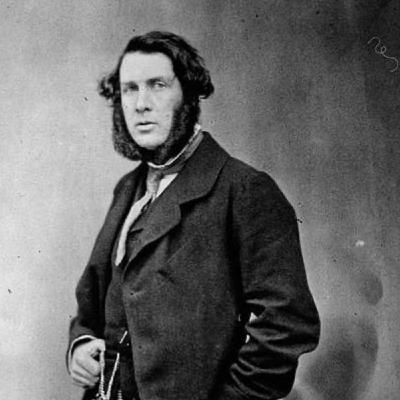S8 Ep123: SHOW 11-24-25 CBS EYE ON THE WORLD WITH JOHN BATCHELOR 1852 THE SHOW BEGINS IN THE DOUBTS ABOUT THE PEACE PLANS. FIRST HOUR 9-915 Ukraine Peace Plans, Concessions, and the Impact on US Alliances — Bill Roggio, Husain Haqqani — Bill Roggiosuggests U
Update: 2025-11-25
Description
SHOW
11-24-25
CBS EYE ON THE WORLD WITH JOHN BATCHELOR
1852
THE SHOW BEGINS IN THE DOUBTS ABOUT THE PEACE PLANS.
FIRST HOUR
9-915
Ukraine Peace Plans, Concessions, and the Impact on US Alliances — Bill Roggio, Husain Haqqani — Bill Roggiosuggests Ukraine is losing militarily and must accept difficult territorial and military concessions to ensure state survival, predicting that proposed peace deals will ultimately collapse. Ambassador Haqqani emphasizes that U.S. abandonment of allies, exemplified in Afghanistan and Iraq, creates an international perception that America cannot be relied upon. Russia's prevailing would constitute a victory for the "axis of aggressors," including China, Iran, and North Korea, fundamentally weakening U.S. global influence.
915-930
930-945
945-1000
China's Floating Island, Metamaterials, and Polar Ambitions — Brandon Weichert, Gordon Chang — Brandon Weichert discusses China developing an artificial floating island, potentially engineered to withstand nuclear detonation. He characterizes the platform as a next-generation man-made island designed for anti-access and area-denial capabilities. Weichert emphasizes that the core technology—metamaterials—holds critical applications for infrastructure in extreme polar environments, including the Arctic and Antarctic. Gordon Chang notes widespread pessimism in China regarding the prohibitive cost of such massive engineering projects.
SECOND HOUR
10-1015
Targeting Terror: Muslim Brotherhood, Hezbollah, and Iran's Crises — Malcolm Hoenlein — Malcolm Hoenlein reports the U.S. is moving to designate the Muslim Brotherhood—Hamas progenitors—as a Foreign Terrorist Organization. He details Iran's severe internal crises, including critical water shortages and power blackouts caused by illegal cryptocurrency mining, alongside its continued drive to rebuild nuclear and conventional arsenals. Israel eliminated Hezbollah's second-in-command, Hashem Safieddine, in Beirut, directly countering Hezbollah's regeneration efforts in Lebanon. The U.S. is actively courting Saudi Arabia to counter China and Russia and encourage participation in the Abraham Accords.
Share
1015-1030
1030-1045
1015-1030
1030-1045
Geopolitical Realignment: Venezuelan Cartel and Latin America's Rightward Shift — Ernesto Araujo, Alejandro Peña Esclusa — Alejandro Peña Esclusa discusses the U.S. designating Venezuela's Cartel of the Suns as a Foreign Terrorist Organization, noting they weaponize drug trafficking and maintain alliances with groups including Hezbollah. Ernesto Araujo addresses former Brazilian President Bolsonaro's recent detention and notes that indigenous protests undermined the Lula administration's narrative at COP 30. The upcoming Honduras election reflects a continental trend away from the corrupt "pink tide" regimes.
1045-1100
THIRD HOUR
1100-1115
The Unacceptable Price of Peace: Ukraine's Sticking Points — John Hardie — John Hardie details the Russian-drafted 28-point peace plan, which demanded Ukraine's withdrawal from Donbass, prohibition of NATO accession, and limitations on military force size. Ukraine, approaching negotiations strategically, refuses to surrender fortified Donbass territory essential for defense against future Russian aggression. Russia's maximalist demands render an acceptable settlement nearly impossible, though Ukrainians would accept a military freeze in place coupled with robust Western security guarantees.
1115-1130
1130-1145
Russia's Ambitions in Southern Syria and Israel's Strategic Calculus — Akmed Sharawari — FDD's Akmed Sharawari discusses Russian officers touring southern Syria, potentially returning to staff deconfliction checkpoints between Israel and Syria. Israel reportedly prefers a Russian presence, including bases in western Syria, as a counterbalance to Turkey's growing influence over Damascus. Sharawari argues Israel should not trust Russia given its history of enabling Iranian-backed actors like Hezbollah. Despite ongoing Israeli operations, Hezbollah's smuggling routes remain operational.
1145-1200
Prime Minister Carney's Early Highwire Act in Canadian Politics — Conrad Black — Conrad Black analyzes the early tenure of Canadian Prime Minister Chrystia Freeland (referred to as Carney in this segment), who narrowly secured passage of his budget. Carney campaigned partly on opposition to Donald Trump, demonstrating political agility by balancing competing party factions—advancing a new pipeline for Alberta while offering environmental concessions. Black notes that Canada remains conflicted regarding China, attempting to maintain trade relations while publicly condemning election interference.
FOURTH HOUR
12-1215
Iran's Strategic Gains from the War in Ukraine — Jonathan Sayeh — Jonathan Sayeh states that Iran is celebrating Russia's advantageous position in Ukraine as a geopolitical win because it enabled Iran to export military weaponry and demonstrate combat capabilities internationally. Iran expects Russia to reciprocate this military assistance, potentially through air defense system modernization or advancement of Iran's nuclear program, despite profound mutual mistrust between the strategic partners. Iran benefits globally by selling weapons and leveraging instability to argue the U.S. has become an unreliable superpower.
1215-1230
1230-1245
Hezbollah Regeneration Efforts and the Fallout from a Targeted Beirut Strike — David Daoud, Bill Roggio — David Daoud reports that Israel killed Hezbollah's top military commander, Hashem Safieddine, in Beirut, marking an expansion of Israeli operations into the Lebanese capital. This escalation reflects Hezbollah's comprehensive regeneration efforts—including receiving billions in funding from Iran and developing domestic drone production capabilities—which are outpacing Israeli degradation operations. Hezbollah and Hamas view Russia's success in Ukraine as strategically beneficial because it diminishes American global hegemony.
1245-100 AM
Comments
In Channel








